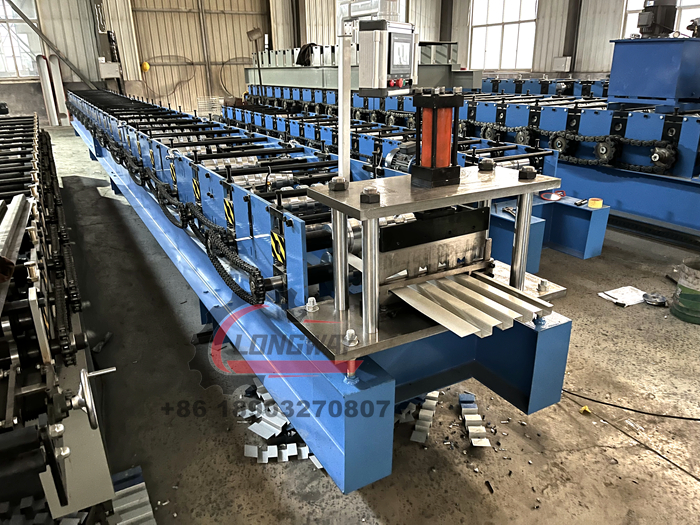Innovative Roll Forming Machine for High-Quality Drywall Stud Production and Efficiency Enhancement
Understanding Drywall Stud Roll Forming Machines
In the construction industry, efficiency and precision are paramount. One of the pivotal innovations that have significantly enhanced these aspects is the drywall stud roll forming machine. This specialized equipment plays a crucial role in the production of metal studs, which are widely used in constructing walls, ceilings, and other structures, particularly in commercial and residential buildings.
What is a Drywall Stud Roll Forming Machine?
A drywall stud roll forming machine is designed to create metallic studs from sheet metal through a continuous bending process. The machine utilizes a series of rollers to shape flat metal sheets into specific profiles, which then can be cut to desired lengths with high precision. Typically, these studs are made from galvanized steel due to its durability and resistance to corrosion.
The Process
The roll forming process begins with the feeding of a coil of metal sheet into the machine. The metal passes through a series of rollers that progressively shape it into the desired stud profile. The design of these rollers is crucial; each rail must be carefully engineered to ensure the metal conforms accurately to strict specifications. After the molding process, the continuous lengths of metal are then cut into manageable pieces, often referred to as studs, for various construction applications.
The entire procedure not only saves time but also minimizes material waste, making it an eco-friendly option for contractors. Additionally, the continuous nature of the process allows for the production of large volumes in a short period, meeting the demands of busy construction schedules.
Benefits of Using Drywall Stud Roll Forming Machines
drywall stud roll forming machine

1. Cost-Effectiveness Utilizing a drywall stud roll forming machine can significantly lower production costs. Mass production capabilities lead to economies of scale, which can be passed on to customers in terms of lower prices.
2. High Precision The automated nature of these machines ensures high accuracy in dimensions, leading to better-quality products. This precision is especially important in construction where misalignment can lead to structural integrity issues.
3. Versatility Modern drywall stud roll forming machines can be adjusted to produce various stud sizes and shapes, accommodating different construction requirements. This flexibility makes them ideal for both large-scale projects and specialized constructions.
4. Time Efficiency Given their ability to produce studs at rapid speeds, these machines help contractors keep up with tight project timelines. The continuous operation minimizes downtime, allowing for an uninterrupted workflow.
5. Durability Steel studs produced by these machines are known for their strength and longevity. Unlike wooden studs, they do not bow, warp, or shrink over time, making them a reliable choice for building structures.
The Future of Drywall Stud Roll Forming Machines
As technology advances, so too does the potential for drywall stud roll forming machines. Innovations such as automation, smart manufacturing, and the integration of IoT (Internet of Things) for monitoring and control are paving the way for even more efficient productions. These enhancements can not only improve operational efficiency but also provide valuable data for manufacturers and contractors alike.
In conclusion, drywall stud roll forming machines represent a critical advancement in the construction industry. Their role in improving efficiency, accuracy, and overall quality of metal stud production cannot be overstated. As the demand for quality construction continues to grow, these machines will undoubtedly remain an integral part of the building process, fostering innovation and progress in the way structures are conceived and created.
-
Top Metal Roofing Machine ManufacturersNewsAug.04, 2025
-
Production Line with a Gutter Forming Machine for SaleNewsAug.04, 2025
-
Production Capacity with a Purlin Machine for SaleNewsAug.04, 2025
-
Exploring Roofing Sheets Manufacturing Machine PriceNewsAug.04, 2025
-
Drywall Roll Forming Machine for SaleNewsAug.04, 2025
-
Best Roof Panel Machine for SaleNewsAug.04, 2025
-
Roof Panel Machines: Buying Guide, Types, and PricingNewsJul.04, 2025








